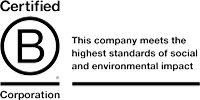At the moment, a trip into the countryside is not possible without restrictions. But you don’t have to look far to find nature. Even from home, on the balcony or in the garden, you can observe how nature welcomes spring.
Bees, bumblebees and other pollinators awaken from their winter cluster and start looking for food and space to live.
THE ALLOS BLOOMING MEADOW PROJECT
Allos has been committed to a long-running flowering meadow project “Bee seeks flowering” since 2012, which seeks to expand the food supply and habitat for bees. This was long before bee conservation became a central topic for the public.
The foundation for “bee seeks blossom” was developed as part of a trainee project with a small strip of flowering meadow behind the Allos Hof in Drebber. Along with the flowering meadows, the project has grown year-on-year. Today “bee seeks blossom” has become a sustainable, large-scale project that involves a lot of pioneering spirit to preserve biodiversity.
In 2020 alone, in cooperation with associations, municipalities, communal initiatives, environmental centers and farmers, as well as the tenants, a large area of over 10-hectares was brought to bloom using sustainable methods and continues to bloom into 2021.
In addition, last year Allos distributed 85,500 free seed sachets and approximately 49,000 seed cans on-pack through organic retailers, with the aim of creating more colourful seas of flowers.
In 2021, Allos want to hear the bees hum again. The company is distributing seeds with Allos products purchased through select specialist organic stores.
COLOURFUL AND REGIONAL: OUR SEED
The “bee seeks blossom” seed mix consists of organic seeds from the region and includes many colourful plants. In 2020, the organic seed mix included herbs, fragrant and flowering plants: buckwheat, cornflower, marigold, borage, dill and phacelia. After sowing in May or June, the seeds bloom in the following months until October. Reaching 30-80 cm high, a colorful flowering area emerges.
BEE POLLINATION IS VITAL FOR AN INTACT ECOLOGICAL SYSTEM
Bees have a huge impact on our ecosystem. Perhaps their biggest contribution is that they pollinate plants which enables them to multiply. Pollination ensures that the flora thrives, and diversity is preserved.
Together, these plants form the food base for other animals like birds. Bees need plants to survive, plants need bees to survive and other animals need plants to survive. Without the bees, the cycle simply wouldn’t work.
Humans also depend on pollinator insects. Many foods, for example strawberries and cherries, have particularly rich yields when pollinated by wild bees or other insects.
HARDWORKING BEES
Here are some interesting facts about bees and small pollinating insects:
- There are over 30,000 different species of bees in the world. In Germany, there are around 560 different bee species and over half of them are endangered
- Bees fly up to 30 kilometers per hour
- A bee weighs less than a tenth of a gram, but can carry almost the same of its body weight transporting honey
- A bee covers around 3,000 km for a portion of honey
It is no wonder they are often referred to as ‘hard working.’
Allos is proud to support and bolster the bee population with ‘bee seeks flower’ blossom project to help give bees a new habitat and source of food.







